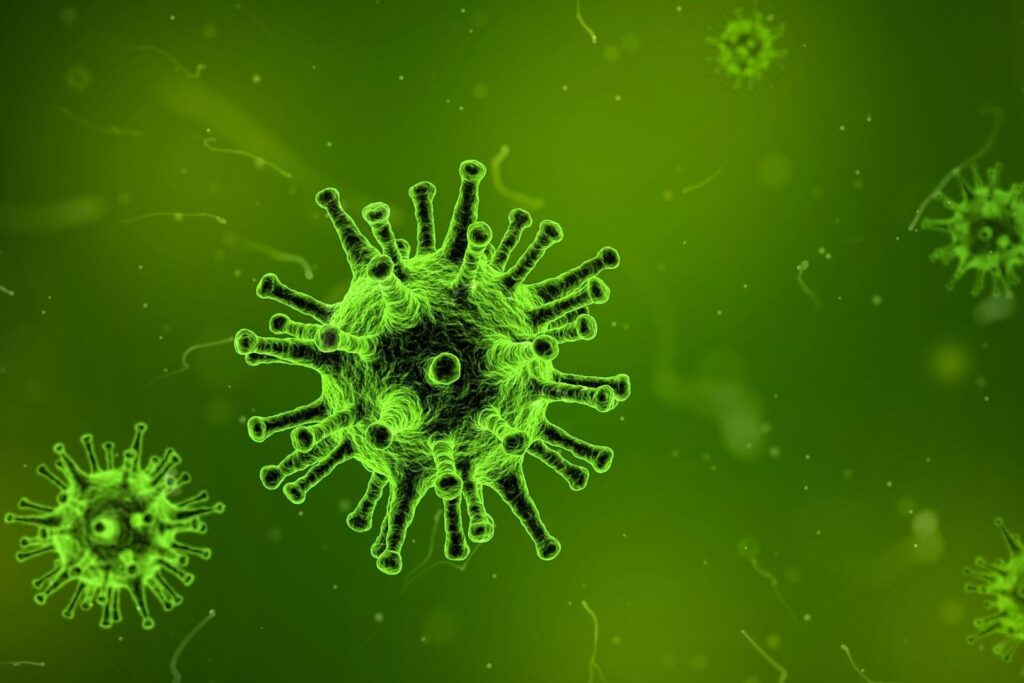COVID-19: Measures to restore Switzerland’s freedom
The Federal Council revokes the measures in force until the end of March, with the exception of the isolation and compulsory use of masks on transport and in healthcare
From Thursday, February 17, 2022, stores, restaurants, cultural facilities, public buildings and events in Switzerland will again be accessible without a mask or certificate. The compulsory use of face masks at work and the recommendation for teleworking have also been revoked.
At its meeting the previous day, the Federal Council repealed almost all national measures against the pandemic.
For the protection of people at particular risk, only the isolation of people who have tested positive and the compulsory wearing of masks on public transport and in health care facilities will remain in force until the end of March.
The epidemiological situation is constantly improving. Thanks to the high immunity rate of the population, an overloading of the health care system is increasingly unlikely despite the still strong circulation of the virus.
The Federal Council, which has been adjusting its measures to the capacities of the health system since May 2021, therefore considers that the conditions are in place for a rapid normalisation of economic and social life.
After consultation with the cantons, the social partners, the competent parliamentary committees and the associations concerned, it is therefore withdrawing most of the measures against the pandemic.
COVID: two different “end of restrictions” scenarios in Switzerland
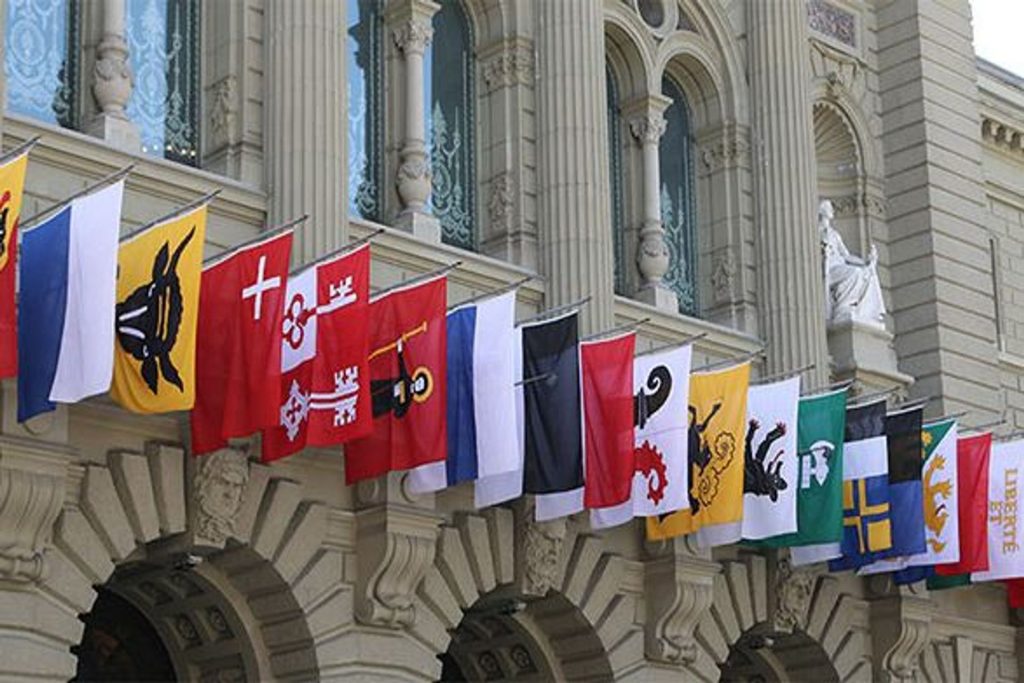
Consultation: Majority for rapid repeal
On February 2, the Federal Council submitted for consultation two variants for the repeal of measures that are still in force.
A clear majority of the respondents was in favor of an immediate repeal of most of the measures, but they were also in favor of maintaining the compulsory wearing of masks in health care facilities and on public transport for as long as the number of infections remains high.
The “new” COVID Law19 passes the Swiss people’s scrutiny

From February 17: lifted almost all measures
As of Thursday, February 17, the following national protective measures will be lifted:
– the mask requirement in stores and indoor areas of restaurants, publicly accessible facilities and events;
– The requirement to wear a mask in the workplace;
– the restriction of access to facilities such as cinemas, theaters and interior spaces of restaurants and events by means of the certificate requirement (rules 3G, 2G and 2G+);
– the permit requirement for large events;
– restrictions for private meetings.
In agreement with the Federal Council, the voluntary capacity restrictions in the retail trade and ski lifts are also lifted.
Teleworking recommendation revoked
The teleworking recommendation of the Federal Office of Public Health has also been withdrawn.
Employers, who are legally obliged to protect the health of their employees, will decide whether they want to work at home or wear a mask.
On the other hand, the rules for the protection of workers at particular risk remain in force until the end of March.
COVID certificate ordinance adopted in Switzerland
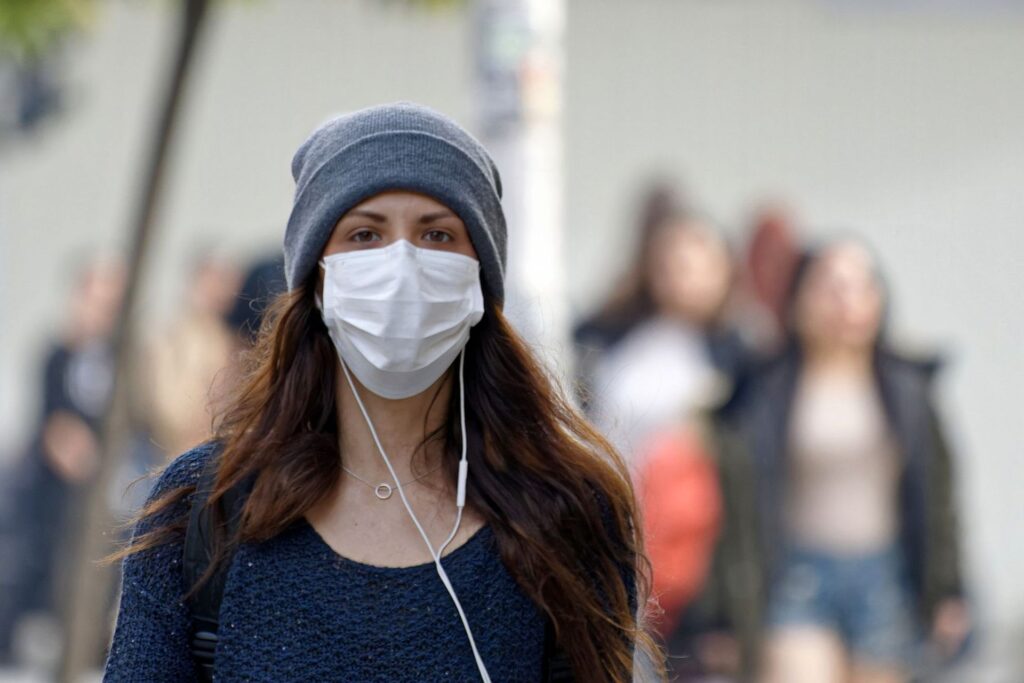
Until March 31: some confinements and protections
In view of the fact that the circulation of the virus is still very strong and that the virus can still cause severe courses of disease, the Federal Council is maintaining two protective measures of the COVID-19 ordinance until the end of March. Depending on the circulation of the virus, an earlier revocation is possible.
People who test positive will have to remain in isolation for at least five days. The aim is to prevent carriers of a potentially high viral load from infecting other people.
The requirement to wear a mask on public transport and in health care facilities also remains unchanged.
Excluded from this obligation are residents of old people’s homes and nursing homes. The cantons are free to take more stringent protective measures or to exclude certain facilities from the mask requirement.
Individual facilities, such as medical practices or hairdressing salons, may also require visitors to wear a mask.
In Switzerland, the COVID19 certificate is universal and cannot be falsified
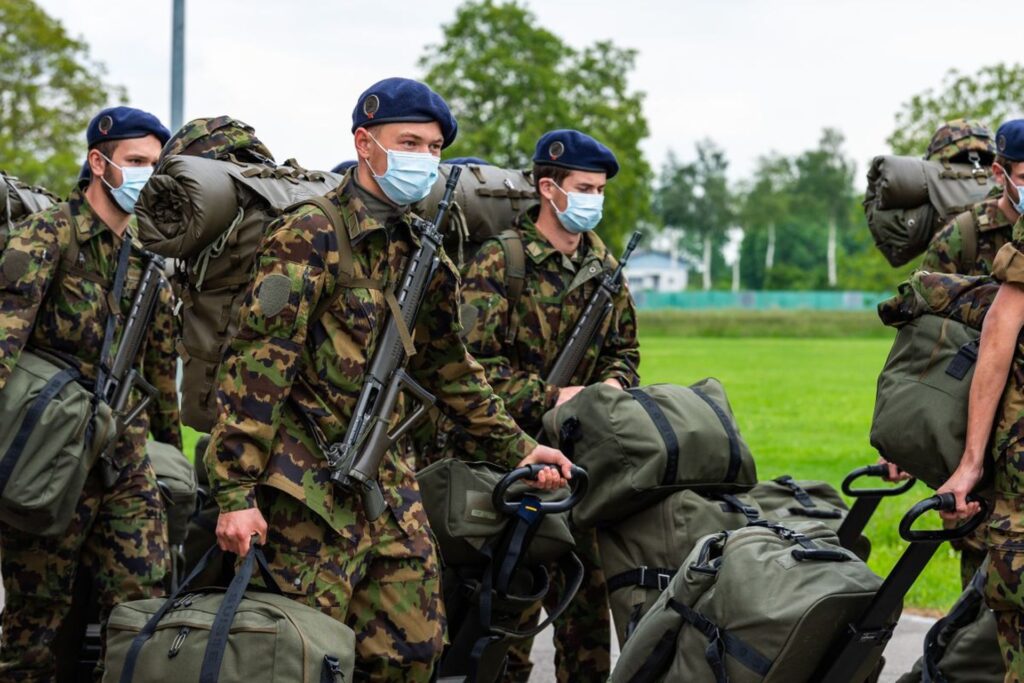
April 1: It will be the end of the “special situation”
The COVID-19 special situation ordinance will continue to regulate isolation and the mask requirement on public transportation and in healthcare facilities until the end of March.
If the epidemiological situation evolves as expected, it will be repealed on April 1, 2022, and the normal situation will revert to that date.
Regulations based on the federal competencies defined in the Epidemics Act (e.g. on international travel or the assumption of costs for medicines) and those concerning the certificate or assumption of costs for tests based on the COVID-19 Act remain in force.
The issuance of EU-compatible COVID certificates continues.
COVID, Switzerland updates regulations on itinerant trade

Cantonal and EU certificates still possible
With the lifting of the certificate requirement, COVID certificates valid only in Switzerland will no longer be issued. The so-called Swiss COVID certificates were introduced in the fall of 2021 to allow additional groups of people access to facilities and events in Switzerland for which a certificate is required.
However, Switzerland continues to issue EU-recognized COVID certificates.
It is likely that other countries will continue to require a COVID certificate for entry and access to certain places in Switzerland. Cantons will still have the option of prescribing the certificate requirement, as they would like.
COVID, Switzerland updates regulations on itinerant trade
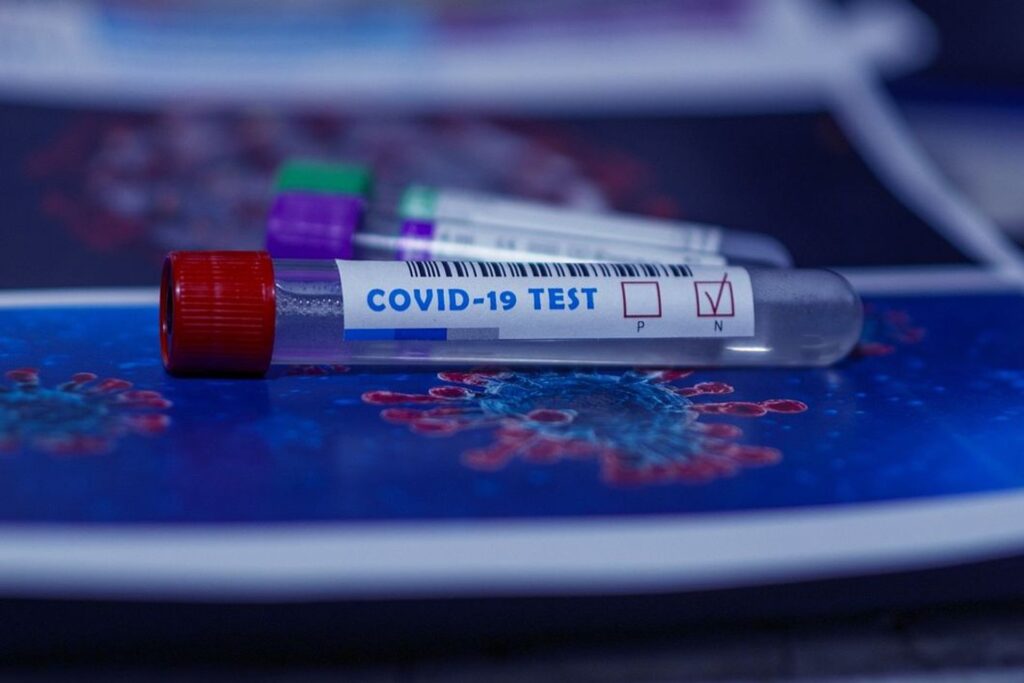
Testing strategy adjustment arrives
The general recommendation and funding of repeated tests in enterprises are withdrawn.
Repeated tests continue to be financed only in limited areas, for example in health and medical-social facilities or in companies, defined by the canton, that are important for the operation of essential infrastructure.
In this way, people who are particularly at risk are protected and it is avoided that a large part of the staff has to be absent from work due to illness or isolation.
As far as schools are concerned, the recommendation and funding of repeat testing by the federal government is maintained until the end of March 2022, as the virus continues to spread at a very high rate among younger people.
#BREntscheid #CoronaInfoCH Der Bundesrat hebt ab 17. Februar fast alle Massnahmen auf. Nur die Maskenpflicht im ÖV und in Gesundheitseinrichtungen sowie die Isolation für positiv Getestete bleiben noch bestehen: https://t.co/pKTlr3ltTE (BK)
— André Simonazzi (@BR_Sprecher) February 16, 2022
#DécisionCF #CoronaInfoCH Le Conseil fédéral lève presque toutes les mesures à partir du 17 février. Seul le port du masque dans les TP et les établissements de santé, ainsi que l’isolement pour les personnes testées positives restent en vigueur: https://t.co/sx1Pf24fCA (BK)
— André Simonazzi (@BR_Sprecher) February 16, 2022
#DecisioneCF #CoronaInfoCH Il Consiglio federale revoca dal 17.2. quasi tutte le misure. Restano in vigore soltanto l’obbligo della mascherina sui mezzi pubblici e nelle strutture sanitarie nonché l’isolamento per le persone positive al test COVID−19 https://t.co/h7TZlWXTvG (BK)
— André Simonazzi (@BR_Sprecher) February 16, 2022
Individual testing continues to be reimbursed: antigenic testing in all cases, PCR testing for people who have symptoms or have had close contact with a person who tested positive.
The payment of compensation for loss of earnings continues to be guaranteed for certain groups of people.
With the lifting of the measures, the need for most economic support measures will also cease.
As of February 17, there will therefore no longer be any entitlement to compensation for loss of earnings due to the closure of facilities, the prohibition of events, the restriction of gainful employment or the termination of childcare by a third party.
Until 30 June 2022, persons who are active in the field of events and whose gainful activity has been significantly restricted as a result of measures to combat the epidemic are an exception.
Until the end of March, persons who had to interrupt their activity because they were considered to be particularly at risk also constitute an exception.
Overall, the rapid lifting of the measures should lead to a reduction in expenditure of hundreds of millions of francs compared to the amounts allocated.
COVID, Switzerland updates regulations on itinerant trade
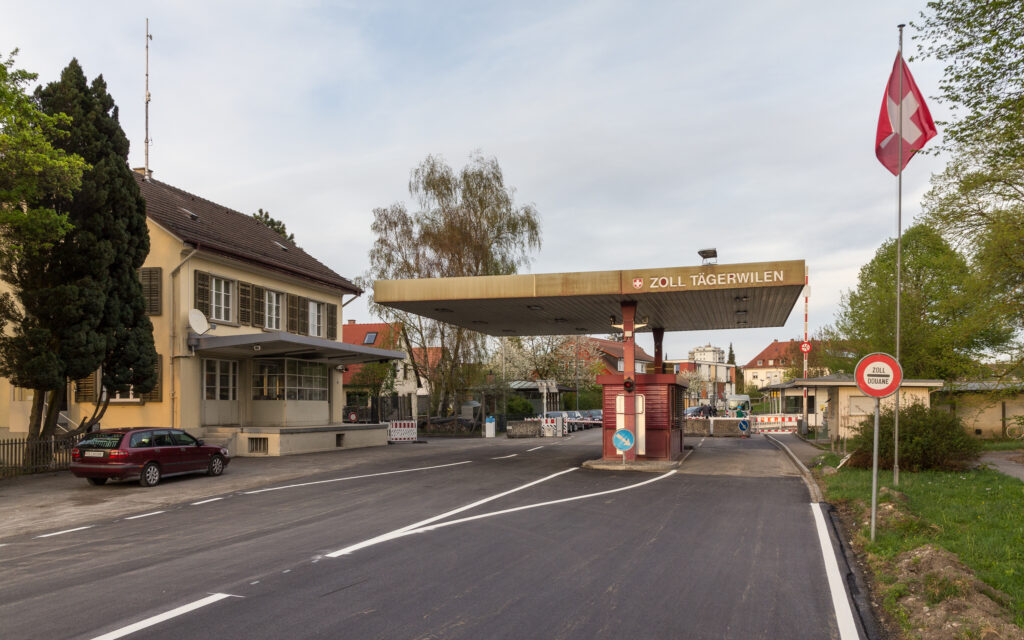
Entry regulations to be updated
Border health measures on entry into Switzerland are lifted. It is no longer necessary to present a certificate of vaccination or recovery or a negative test result and the entry form no longer needs to be completed.
Adjustments to the assumption of costs for outpatient treatment medications
New medications that can be used for COVID-19 patients at risk of a serious course are initially funded by the federal government and will be listed in the appendix of the epidemic ordinance.
Anti-COVID measures gone, Switzerland will start running

Science task force: will be stopped March 31, 2022
At the request of the Science Task Force itself, the consulting contract will be terminated early at the end of March. The mandate was originally scheduled to expire at the end of May 2022.
As the epidemiological situation evolves, the need for scientific advice will also change. Some members of the Task Force will remain available to the Federal Council and the Federal Administration as consultants.
From spring 2020, the Scientific Task Force will provide independent scientific advice free of charge. The Federal Council thanks the members for their great commitment.
The exchange of views with the Scientific Task Force was a central element in the management of the pandemic.
FAQ – Aufhebung Massnahmen
FAQ – Levée des mesures
FAQ – Abrogazione dei provvedimenti
